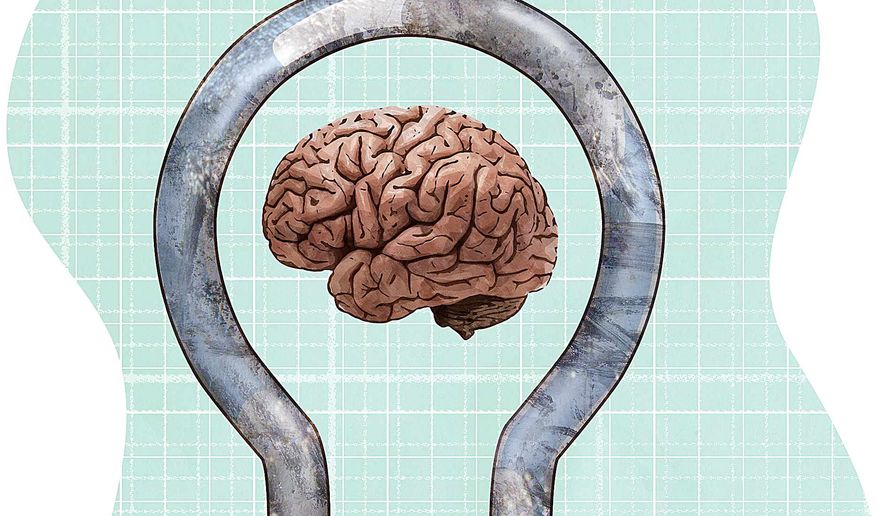OPINION:
In three great phases, America’s economy has been transformed. Before the Civil War, we were a nation where agriculture was the dominant economic driver. Between the Civil War and the 1960s, America became the most powerful manufacturing economy in the world. Beginning in the 1960s, America’s dominance in aerospace and computing technology remade the world economy in the most fundamental way. Through it all, America’s Constitution and laws have provided risk-takers, visionaries, and men and women with a valuable idea a fundamental protection for their work: the patent.
More than 200 years ago, the Framers of the Constitution saw the value of protecting the works of America’s inventors, innovators and builders: “The Congress shall have Power To promote the Progress of Science and useful Arts, by securing for limited Times to Authors and Inventors the exclusive Right to their respective Writings and Discoveries … .” They recognized that work, even before the Industrial Revolution, didn’t just include the sweat of a man’s brow, but the value of ideas, concepts and intellectual vision. They viewed the patent as a property right, held by the inventor and protected by the government.
Now, that crucial private property right and the innovation it drives could be put at risk if special interests in Washington have their way. American innovation in software, information technology, biomedical research, and a host of other fields that represent the future of the U.S. economy would be put in grave peril by a special-interest scheme that will have devastating economic consequences.
Unfortunately, some conservatives have joined with President Obama to put the future of innovation in danger with ill-considered and ideologically driven patent “reform” proposals. In the early days of the new Congress, some conservatives may abandon their long-held views on the value and importance of private property rights and join hands with Mr. Obama to try to enact a bill that will weaken property rights and disrupt the patent system enshrined in our Constitution.
There’s a reason we use the phrase “intellectual property” when we talk about patents. The word “property” is the key. An inventor is no different from the owner of any other kind of property. Like physical property, patents can be bought, sold or utilized by the owner as he or she sees fit. Like physical property, intellectual property should rest in the hands of its creator and owner.
Unfortunately, the debate over this bill has morphed into one about “tort reform,” as advocates claim that this is some strike against the trial bar. However, this debate is not about tort reform — it is about defending property rights, and on that we cannot give ground. Because a patent is property, patent infringement amounts, no more and no less, to trespass. The owner of intellectual property, no less than the owner of a home, must have the legal right and practical ability to protect his or her property by ejecting those who invade that property without invitation or authorization. Weakening the right to defend one’s property right is not tort reform. In fact, there is great likelihood that this legislation will only prolong litigation and make it costlier.
Some people argue that this so-called reform is designed to stop a few opportunistic “patent trolls” from unleashing a flood of litigation. They claim that such “trolls” do not make productive use of their patents themselves, but instead use the patents to harass businesses into inefficient licensing arrangements and nuisance-value settlements. This argument is specious, and false.
Again, one of the inherent features of any type of property is the owner’s right to use, sell, rent, license or otherwise dispose of that property as he or she sees fit. Some owners of farm land, for example, lease it to others to plant and harvest, but no one would call such a landowner a farming “troll” for objecting to the presence of trespassers on his property.
Intellectual property is and should be no different in this regard. The fact that some patent owners do not themselves directly practice their invention, but instead license others to do so, often leads to the most efficient utilization of resources in our economy. The proponents of patent “reform” have not made a serious effort to differentiate such entirely legitimate and productive uses of intellectual property from actions that truly amount to abuse of the patent system. Their “reforms,” therefore, threaten to trample property rights and to stifle the types of innovation that fuel the 21st century economy.
In any event, there are ways to fight so-called patent “trolls” that are more targeted, and more effective, than the kind of sweeping, reckless revision argued for by Mr. Obama and his allies. In fact, the Supreme Court and the Judicial Conference in a number of decisions and rules changes have already tightened patent litigation, addressing the bad lawsuits that proponents of this approach claim to be concerned about. Patent litigation is actually down significantly since last year, according to a number of analyses.
We must tread carefully as the unintended consequences of this legislative approach will have economic ramifications that could cripple American innovation and drive new technology development overseas to nations where property rights are not protected.
We’re faced with a clear choice: either we honor the protections that have helped inspire and motivate the most dynamic technology innovation in the history of the world, or we send a message to the inventors and innovators of the future that their work, their vision and their entrepreneurial commitment is free for anyone to take, to use and to profit from.
• Charles J. Cooper is founding partner of the Washington law firm of Cooper & Kirk, PLLC.




Please read our comment policy before commenting.